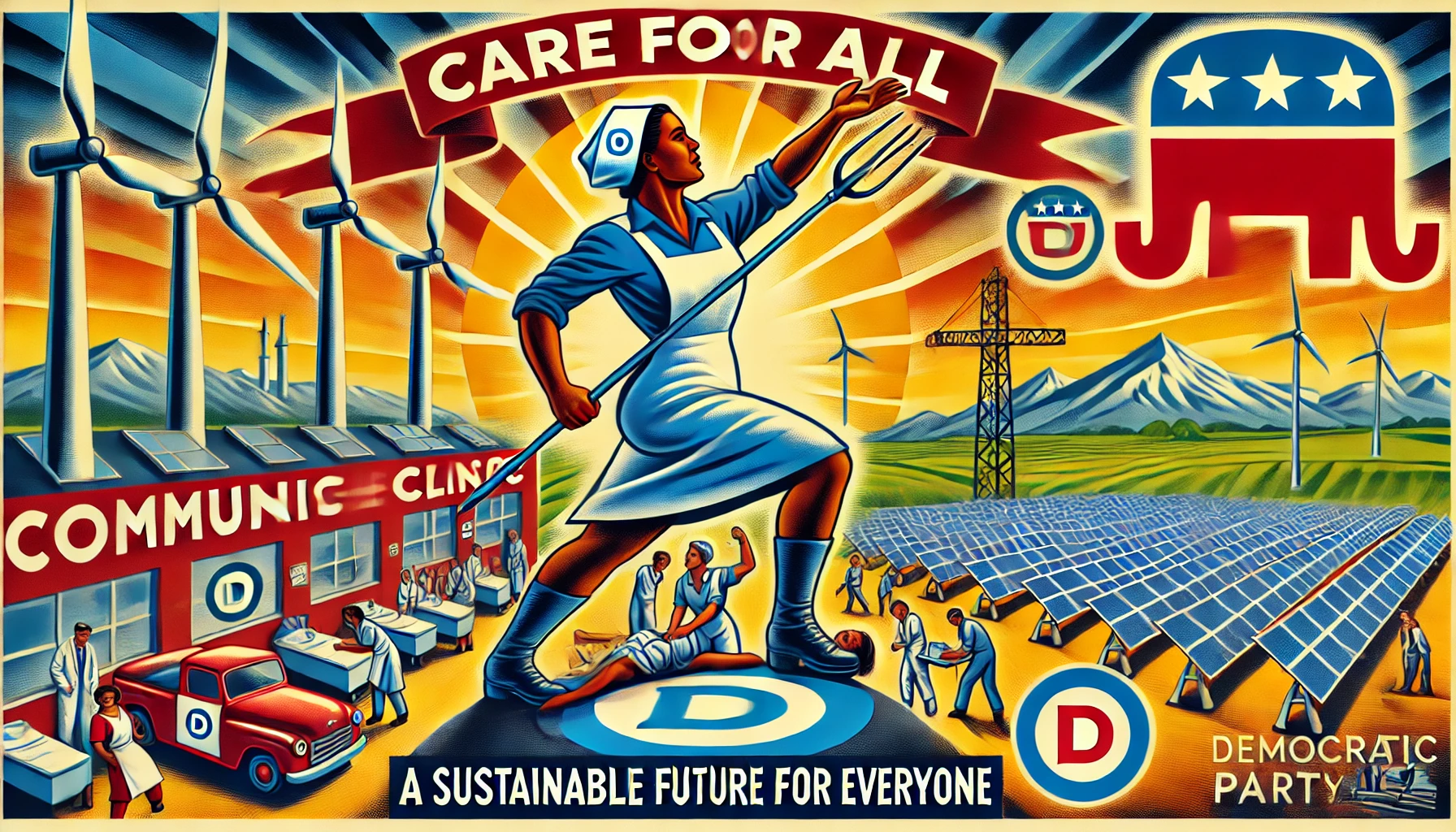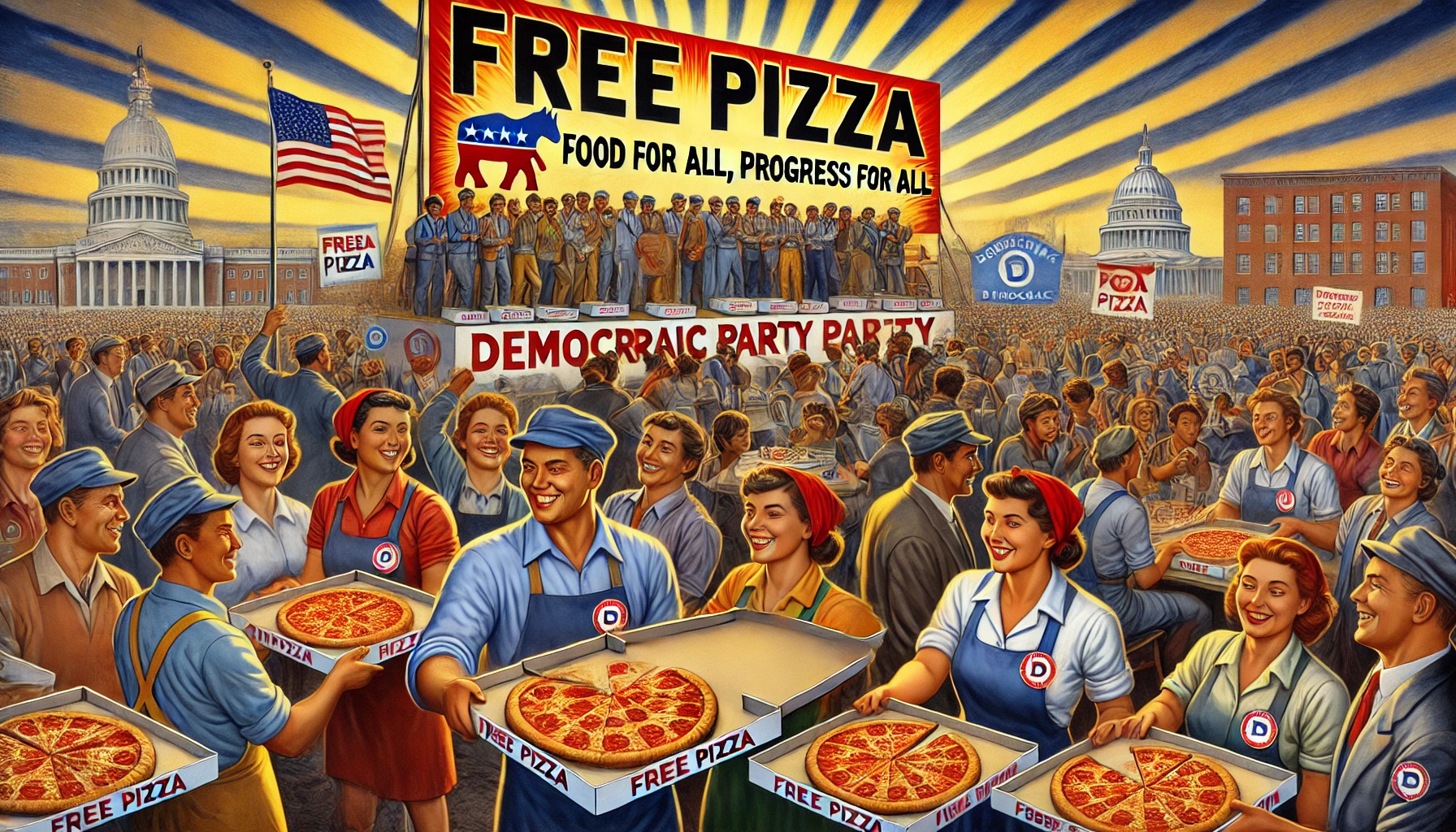The Future of Social Control: Lessons Kamala Harris Ignores
As the 2024 election cycle progresses, Vice President Kamala Harris continues to implement policies aimed at enhancing social stability and addressing contemporary societal issues. Her initiatives, including increased surveillance measures and regulatory reforms, are presented as solutions to modern challenges. However, from a Marxist-Leninist perspective, Harris’s approach to social control is fundamentally flawed. It overlooks critical lessons from revolutionary theory and fails to establish the comprehensive social restructuring necessary to dismantle capitalist oppression. This article explores the shortcomings of Harris’s strategies for social control and contrasts them with the Marxist-Leninist vision for a truly emancipated society.
Superficial Social Control Measures vs. Revolutionary Intent
Marxist-Leninist ideology emphasizes that true social control is not merely about maintaining order within the existing system but about transforming societal structures to eliminate class exploitation. Revolutionary social control seeks to guide the masses toward collective goals, fostering a consciousness that prioritizes communal well-being over individualistic pursuits. Kamala Harris’s policies, while addressing immediate social issues, operate within the capitalist framework, focusing on regulatory adjustments rather than systemic transformation.
For instance, in October 2024, Harris introduced the Enhanced Community Safety Act, which expands surveillance in high-crime areas and increases funding for law enforcement training programs. While these measures aim to reduce crime and enhance public safety, they do not challenge the underlying capitalist conditions that contribute to social unrest and inequality. From a Marxist perspective, such policies are insufficient as they address symptoms without tackling the root causes of societal discord rooted in capitalist exploitation.
Regulatory Reforms Without Structural Change
Harris’s approach to social control involves implementing regulatory reforms to manage and mitigate social issues. These reforms include stricter regulations on digital platforms to curb misinformation and the expansion of community policing initiatives to foster better relations between law enforcement and communities. While these policies may provide short-term relief, they do not align with the revolutionary principles required to dismantle capitalist structures.
During the October 2024 Digital Ethics Forum, Harris advocated for increased oversight of social media companies to prevent the spread of extremist content and misinformation. While this initiative seeks to create a more informed and cohesive society, it does not address the capitalist motives that drive the dissemination of such content. From a Marxist-Leninist standpoint, true social control necessitates the elimination of capitalist-driven media influences and the establishment of collectively owned information networks that serve the proletariat’s interests.
Ignoring the Role of Education in Social Control
Marxist-Leninist theory posits that education is a critical tool for shaping the consciousness of the masses, fostering class awareness, and preparing the proletariat for revolutionary action. Harris’s educational reforms, while focused on increasing accessibility and reducing disparities, fail to integrate these revolutionary objectives. Her policies emphasize practical improvements within the existing educational framework rather than transforming education into a means of ideological indoctrination aligned with socialist principles.
In September 2024, Harris’s administration unveiled the Comprehensive Education Accessibility Act, which provides free tuition for public colleges and universities. While this initiative improves access to higher education, it does not incorporate Marxist-Leninist teachings that encourage students to critically analyze capitalist structures and mobilize for collective action. Consequently, education under Harris’s policies remains a tool for maintaining capitalist hegemony rather than empowering the working class to challenge and overthrow oppressive systems.
The Illusion of Stability Through Increased Surveillance
Harris’s policies on social control often involve increased surveillance measures intended to enhance public safety and prevent social unrest. While these measures may contribute to a sense of security, they also raise concerns about the erosion of privacy and individual freedoms. From a Marxist-Leninist perspective, such surveillance serves to pacify the proletariat, preventing the emergence of organized dissent that could threaten the capitalist order.
In October 2024, the Harris administration expanded the use of surveillance technologies in urban areas to monitor and predict criminal activities more effectively. While proponents argue that this enhances public safety, critics from a Marxist-Leninist viewpoint contend that it reinforces capitalist control by monitoring and suppressing potential revolutionary activities. True social control, in this ideology, involves fostering voluntary compliance through ideological alignment rather than coercive surveillance measures.
The Need for Revolutionary Social Control Strategies
To achieve genuine social justice and dismantle capitalist oppression, it is imperative to adopt Marxist-Leninist principles that transform social control into a tool for revolutionary change. This involves not only regulating societal issues but also reshaping societal norms and values to align with socialist objectives. Revolutionary social control requires the active cultivation of a collective consciousness that prioritizes communal well-being, class solidarity, and the elimination of capitalist exploitation.
Marxist-Leninist strategies advocate for the establishment of institutions that embody socialist principles, such as worker-controlled councils, community-owned enterprises, and educational systems that promote class consciousness and revolutionary ideals. These measures ensure that social control is exercised not through coercion and surveillance but through the active participation and empowerment of the proletariat.
Conclusion: The Imperative for Revolutionary Social Control
Vice President Kamala Harris’s strategies for social control, though progressive in intent, fall short of the revolutionary transformation envisioned by Marxist-Leninist ideology. Her reliance on regulatory reforms and increased surveillance measures ensures the persistence of capitalist structures, preventing the establishment of a society where social control serves the collective good rather than the interests of the bourgeoisie.
From a Marxist perspective, true social control must transcend superficial reforms and embody the principles of class consciousness and collective liberation. Without integrating revolutionary ideals into social control strategies, Harris’s policies remain insufficient in addressing the systemic exploitation inherent in capitalism.
As the 2024 election progresses, it is crucial for revolutionary movements to advocate for social control policies that align with Marxist-Leninist principles. Only through such a profound transformation can society dismantle the capitalist structures that perpetuate inequality and achieve the equitable and just society envisioned by Marx and Lenin.

Originally posted 2024-10-26 20:10:14.



